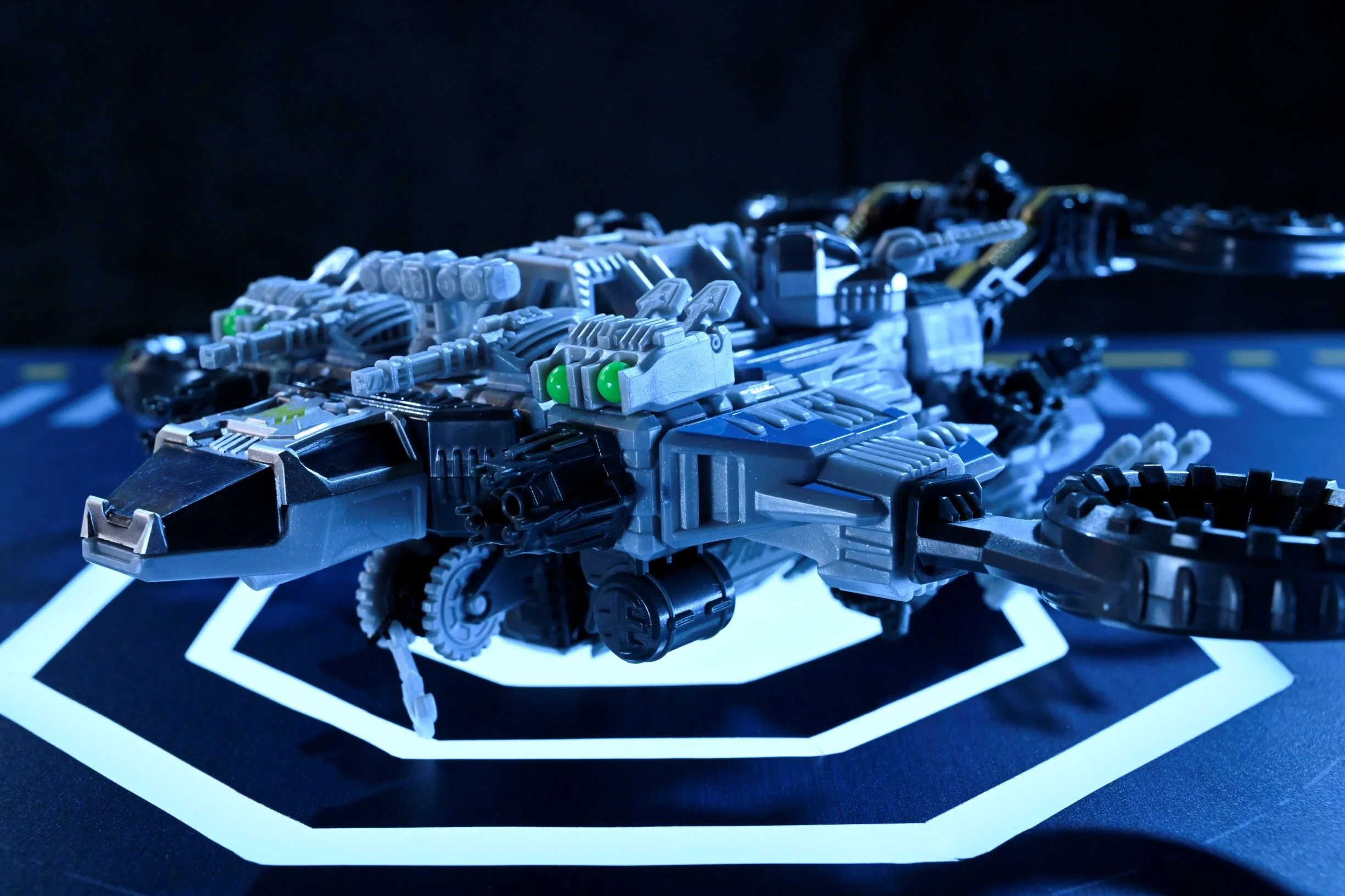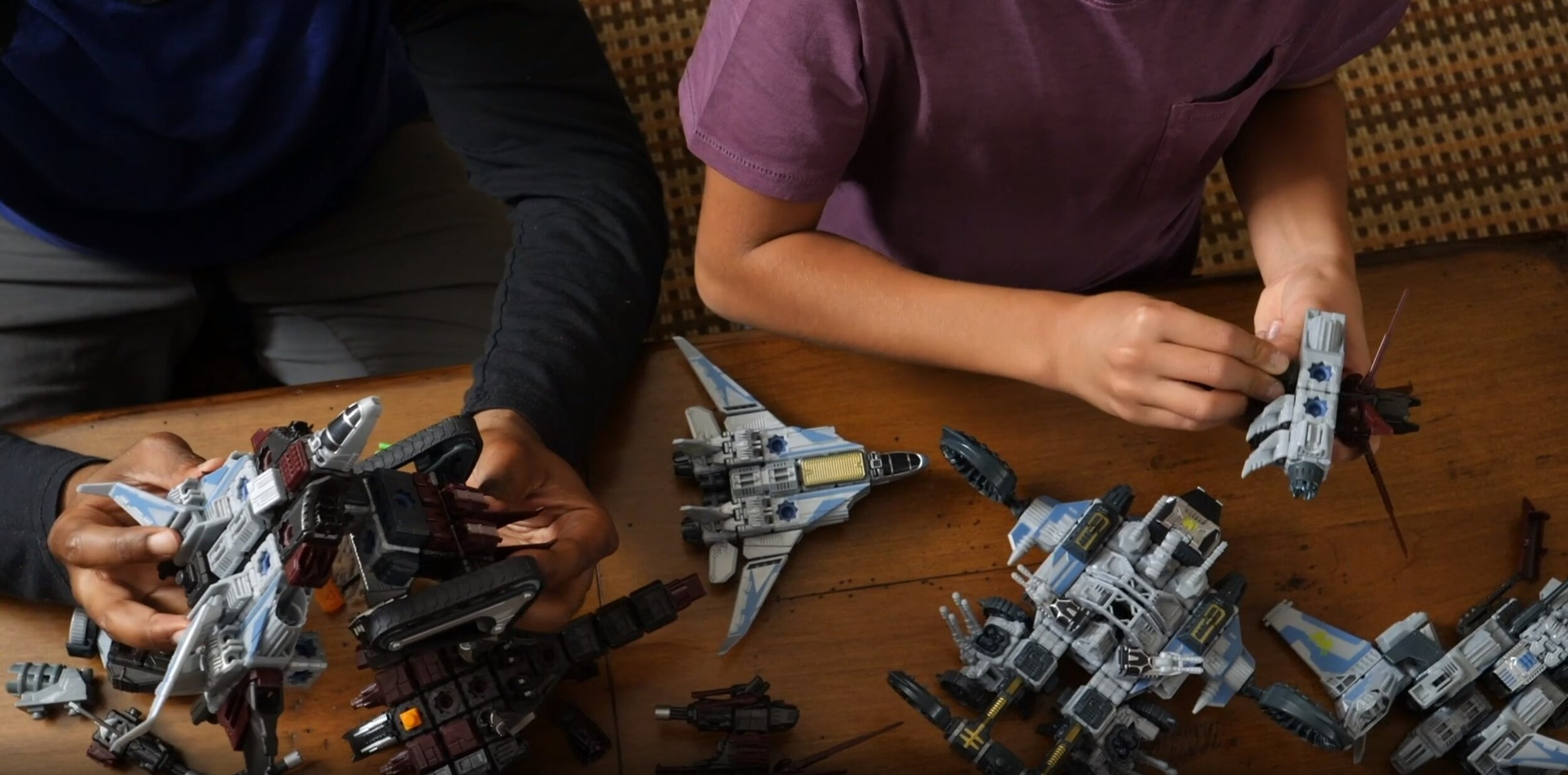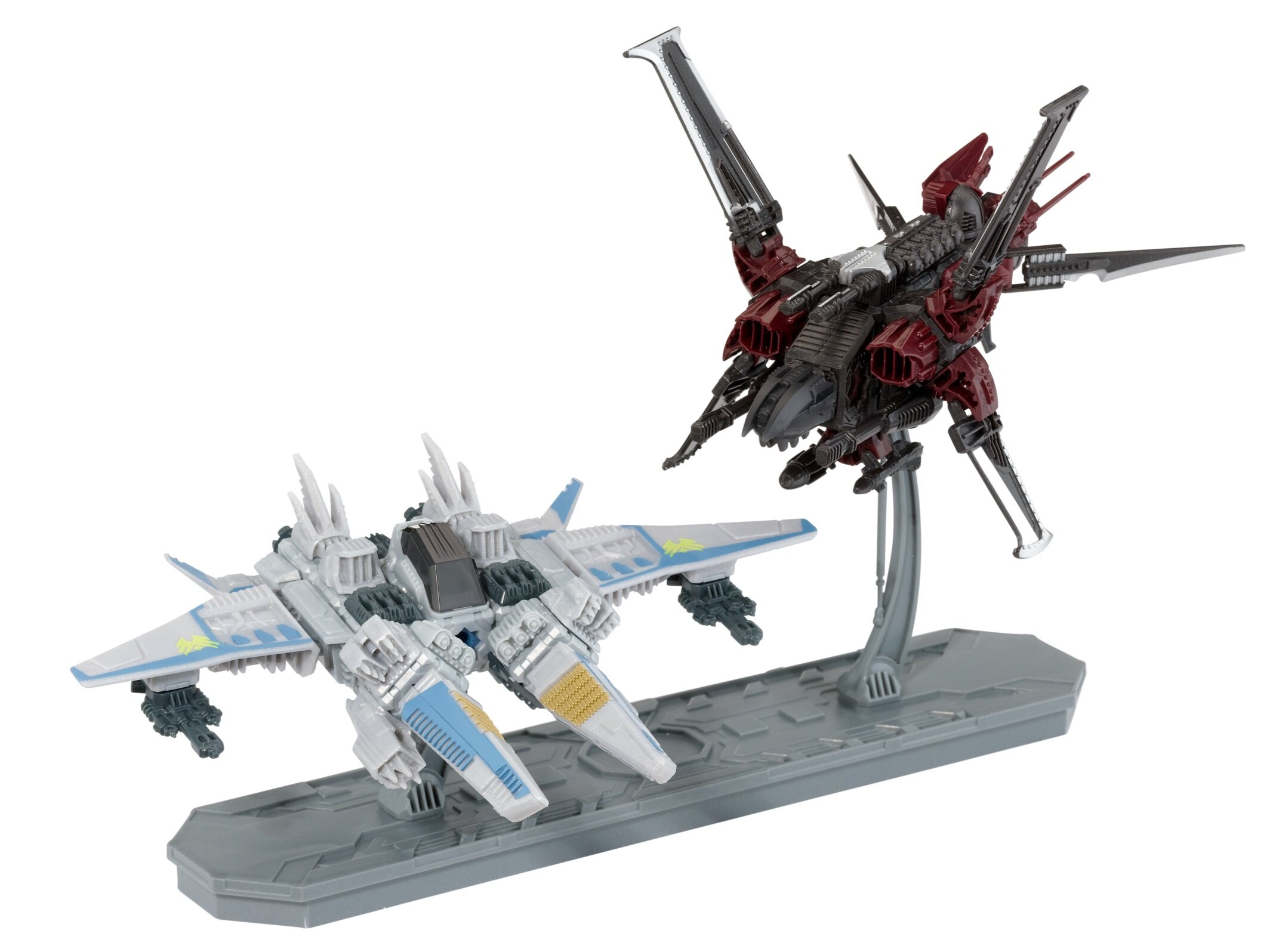A modular toy system from the ground up
Snap ships first came to Playmonster as an inventor idea. This line represents a fast and robust building system designed around a 2 material cube as the base unit of construction. Myself and one other designer took that idea from the cube building system to a fully designed line of 11 ships in less than one year to create the first offering of Snap Ships in 2020.
The System
The building process
Because the base unit of the cube is the same throughout every kit, all the pieces in those kits are interchangeable. They all follow the same rules, and all play together in any configuration. because the cubes are so simple to put together, Snap Ship chassis go together FAST, allowing extremely quick iteration and countless alternate builds.
The snap ships cube
All snap ships begin as simple blocks. These blocks snap together with each other and all subsequent components. The small mushroom pegs interact with the rubber core to create a solid and playable yet easy to remove connection that allows for fast building and durable toys in play.
the greeblies
All of this fast and satisfying building wouldn’t be worth anything if the build didn’t end up looking awesome. Each Snap Ship kit comes with a full set of totally unique space ship parts to attach to the cube chassis. These include wings, fins, blasters, rockets, engines, vents, and even opening cockpits.
Snap Ships should be fun to build and allow anyone to make a great looking space ship easily.
The Ships
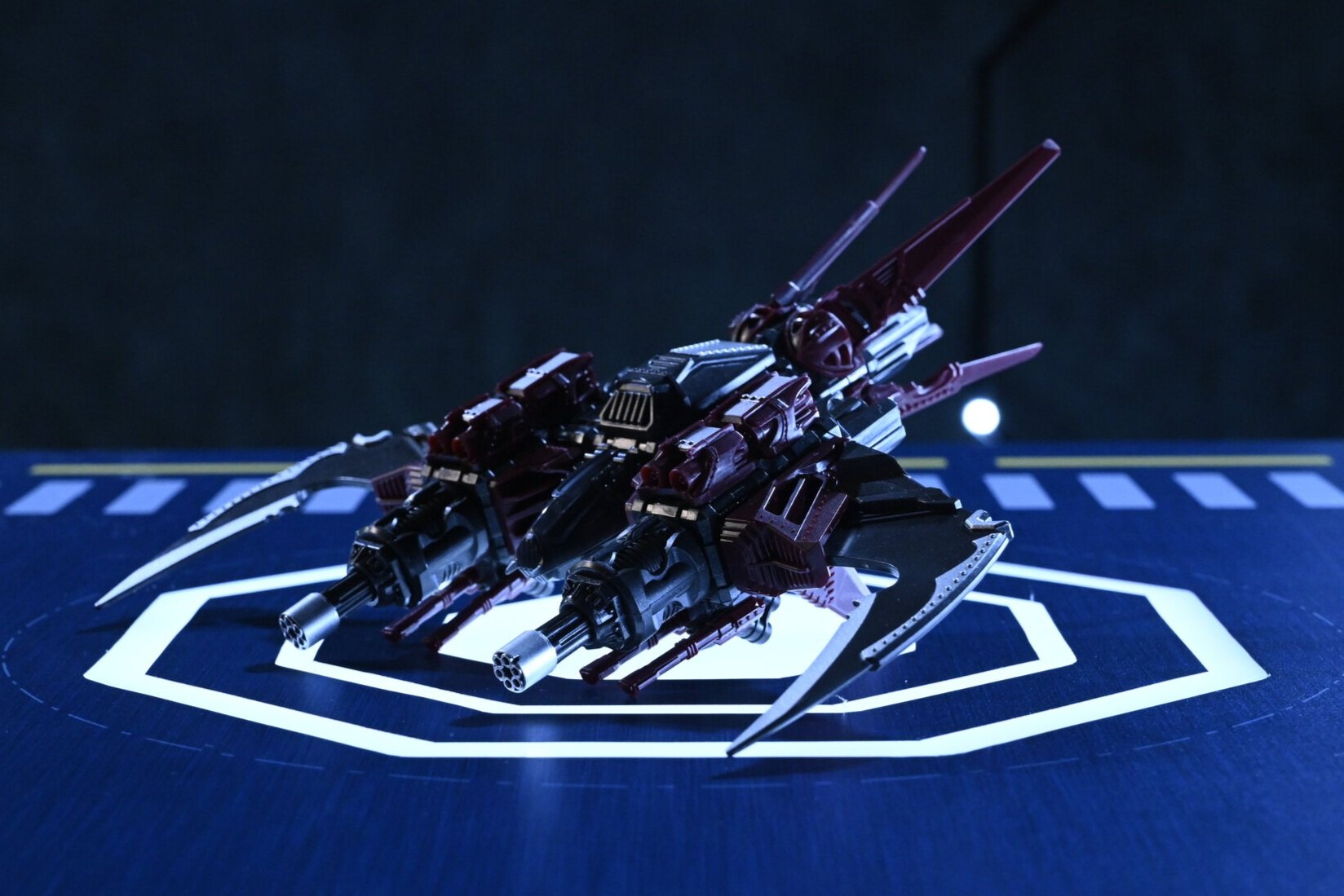




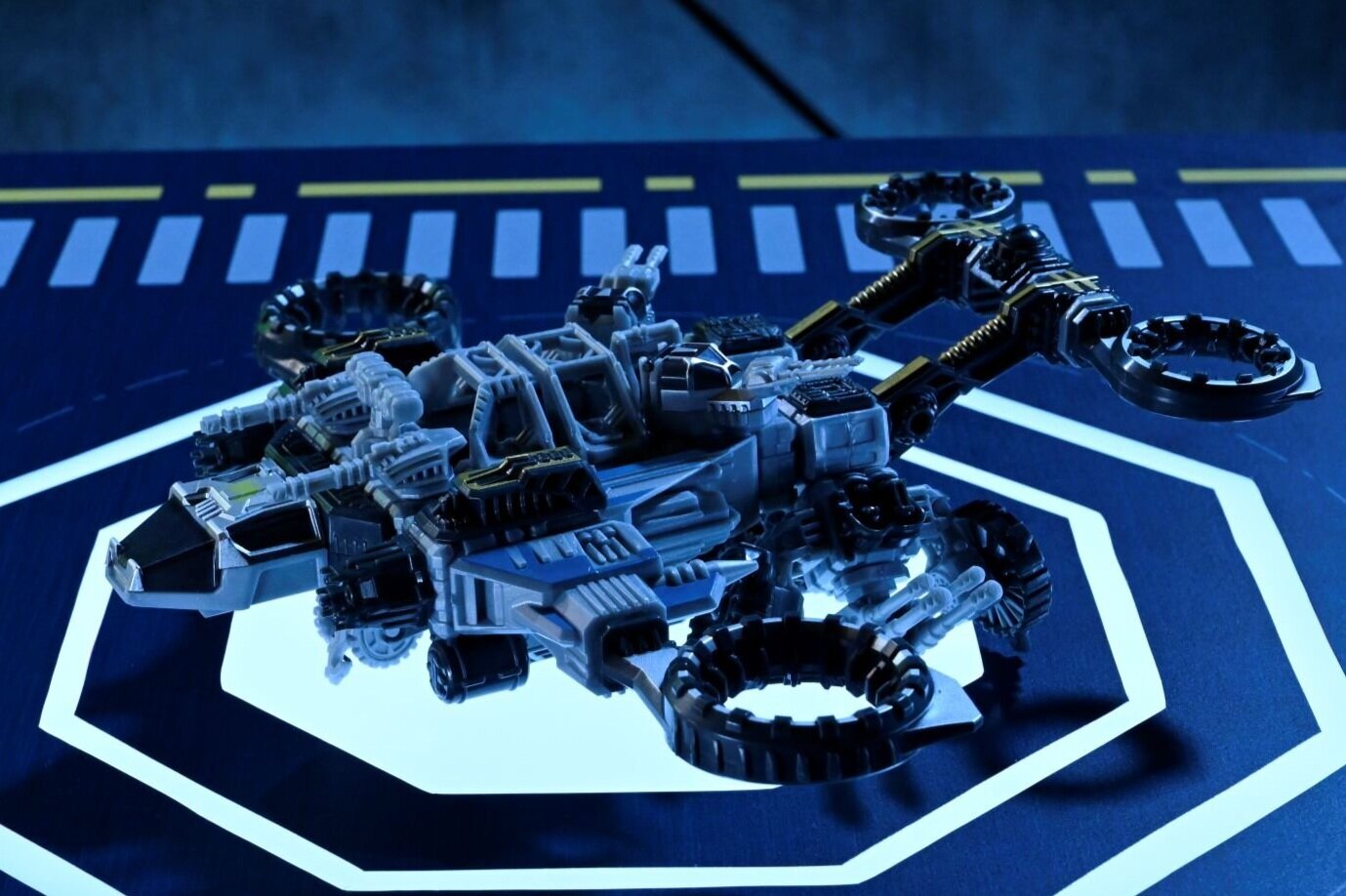




Designing a fleet
Each Snap Ship is, apart from the cubes, made up of completely unique pieces. This not only means, that, along with the construction, each ship looks distinctive from it’s squadron mates, it also means that every time a new kit is acquired, all the pieces inside are new and fresh, allowing the builder to construct bigger and badder ships using their existing parts.
Great care was taken in the design process to ensure a religious attention to both the system these pieces live in as well as the scale and attention to detail of each separate piece. This attention extended to how those pieces could be used in a variety of different orientations and applications as well. Could this engine be an intake? Could these fins be blades? If I wanted to build a ship that can do this, what kind of piece would I need? This first wave of ships answered and raised many questions about how this system operates, and all of this new information as well as extreme playtesting were brought to bear on this line and the consecutive lines of 2021.
The Play
Thinking like a pilot
Snap Ships are toys, that goes without saying, but they are meant to draw their “pilots” into an immersive experience, to explore, try new things, enter the world of Snap Ships. For this reason, the parts are interactive where they would be on the real thing. Would I need to turn this blaster? It should rotate. Would the engines need to change position to maneuver? How would fins and airbrakes work? Where would wings and landing gear pivot? All these points were taken into consideration to ensure the ship does what it feels like it should be able to do.
I’m a sci-fi nerd, and it was so important to me that these feel like machines, they feel grounded, like they could actually function.
What treats can be hidden to delight the consumer?
How would i want to zoom my spaceship in a dogfight?
Which bits would bristle before the bad guy attacks?
Can i shink shink the shink shink looking parts?
Can i extend the play and fantasy past the ship exterior?
The Process
iterate iterate iterate
The interesting challenges of designing both a building system as well as the pieces for that system simultaneously are both a blast and horrifying. The overall ship concept needs to be broken down to its base cubes, mockups made, and parts added and tweaked before the final result can be realized. This consists of a lot of trial and error and many times, the resultant ship has morphed from the original design into something different to suit the needs of the system and the economy of selling toys.
Initially, a silhouette is explored. How should this ship feel? What is it’s stance?
Mockups are quickly modeled and printed out to bring the silhouette into a realistic and actionable state.
Photos of these mockups are photographed and sketched over in order to ideate on individual components.
These components are modeled and tweaked into their final form.
Ideation examples
a whole new world
This method of circular ideation was definitely a new feeling and a system we needed to develop basically on the fly. But it was immensely helpful and yielded excellent results.
